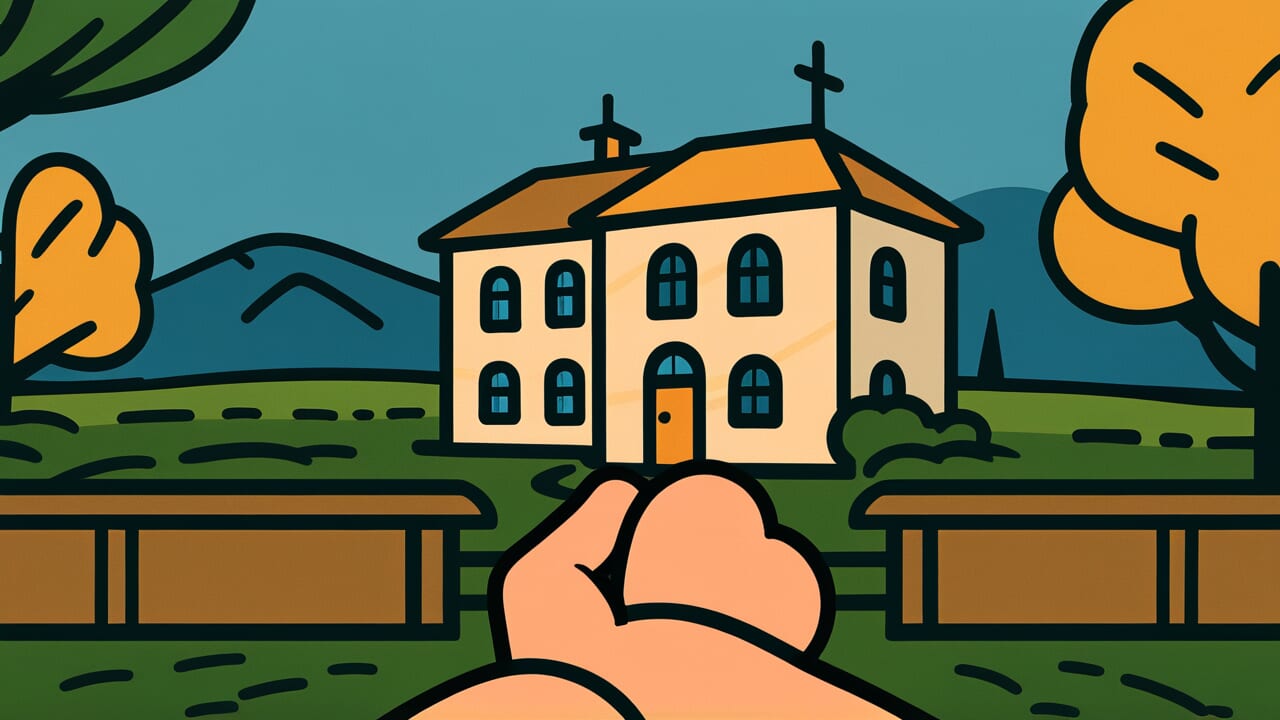How to Read “There is a capital in the countryside”
Inaka ni kyō ari
Meaning of “There is a capital in the countryside”
“There is a capital in the countryside” means that even in rural areas, you can find sophisticated places and exceptional people.
This proverb teaches us not to look down on rural or unremarkable places. Value doesn’t exist only in cities or famous locations.
Even in seemingly empty countryside, surprisingly refined culture and talented people can exist.
People use this saying when they visit rural areas and encounter something unexpectedly wonderful. It also applies when discovering excellence in unknown places or people.
The proverb also warns against city-centered thinking. It reminds us that valuable things exist everywhere.
Today, information technology has narrowed the cultural gap between rural and urban areas. Still, the essence of this proverb remains unchanged.
It reminds us to see things without prejudice. This wisdom stays important in our modern world.
Origin and Etymology
No clear written records explain the origin of this proverb. However, we can make interesting observations from how the phrase is constructed.
“Kyō” refers to Kyoto, of course. From the Heian period to the Edo period, Kyoto was Japan’s capital and the center of culture and refinement.
For people of that time, Kyoto was a place of longing. It symbolized elegance and advanced culture.
Meanwhile, “inaka” means countryside, places far from the capital. People back then felt that Kyoto was the peak of culture.
The farther you went from Kyoto, the less cultured a place was thought to be.
This proverb likely emerged as a challenge to that common belief. The discovery that excellent places and people existed even far from the capital must have been refreshing.
Travelers to rural areas sometimes encountered impressive buildings or educated people against their expectations. They might have exclaimed, “There is a capital even in the countryside!”
This proverb contains the wisdom of our ancestors. It teaches us to see things without preconceptions.
Usage Examples
- I visited a small rural town and found an amazingly wonderful museum. It was truly “There is a capital in the countryside.”
- That village craftsman’s skills match those of top city artisans. This is exactly what “There is a capital in the countryside” means.
Universal Wisdom
“There is a capital in the countryside” offers deep insight into how humans perceive “center and periphery.”
Everyone tends to judge the world based on places they know and environments they’re familiar with. City dwellers think from an urban perspective.
They try to find value in famous places and people. But this habit of thinking might be narrowing our vision.
This proverb has been passed down through generations because humans constantly “overlook” things. We get distracted by what stands out and undervalue what seems plain.
We mistake only shining things as valuable. We miss the true worth of things that sit quietly.
Our ancestors understood this human nature. They knew that valuable things don’t always exist at the center.
Often, they hide in unexpected places. They captured this truth in this proverb.
True richness can exist anywhere. Whether we discover it depends on whether our mind’s eye is open.
This proverb continues teaching across time. It shows the importance of viewing the world with humility and curiosity.
When AI Hears This
When you try to measure a coastline’s length, the finer you make your ruler’s scale, the longer it becomes. This is the basic principle of fractal geometry.
At any scale, similar complex patterns repeat. Human society has exactly the same structure.
Kyoto had a power pyramid with the emperor at the top. Nobles, warriors, merchants, and craftsmen formed layers below.
Surprisingly, small rural villages also had power structures with village chiefs at the top. Landlords, tenant farmers, and craftsmen formed similar layers.
Zoom in further, and even one family within that village has a hierarchy centered on the household head. Conversely, zoom out to one noble mansion in Kyoto.
There too, you find hierarchical structures of master-servant relationships and role divisions reproduced.
This self-similarity can be analyzed mathematically. For example, if you quantify power concentration, Pareto’s law holds true.
Whether in a city of 1,000 people or a village of 100, the top 20 percent controls about 80 percent of total resources. Even when scale becomes one-tenth, structural ratios remain preserved.
When humans form groups, they always create center and periphery, upper and lower layers, regardless of size. Fractal structure is built into social systems, not just nature.
Lessons for Today
This proverb teaches us the courage to see the world without preconceptions.
Do we unconsciously judge things by brands, titles, or a place’s fame? Do we assume only prestigious university graduates are excellent?
Do we think only big companies have value and only cities are attractive?
But truly important things lie beyond such labels. A small town library might have a wonderful collection.
An unknown company might possess innovative technology. Among people you overlook, irreplaceable talent might be sleeping.
Today, the internet is narrowing the information gap between rural and urban areas. This gives us a chance to develop eyes that see essence, not location or appearance.
Next time you judge something, pause for a moment. Ask yourself if your preconceptions are blocking wonderful encounters.
Are you missing the true value of the person or place before you? By asking this, your world will surely expand richly.



Comments